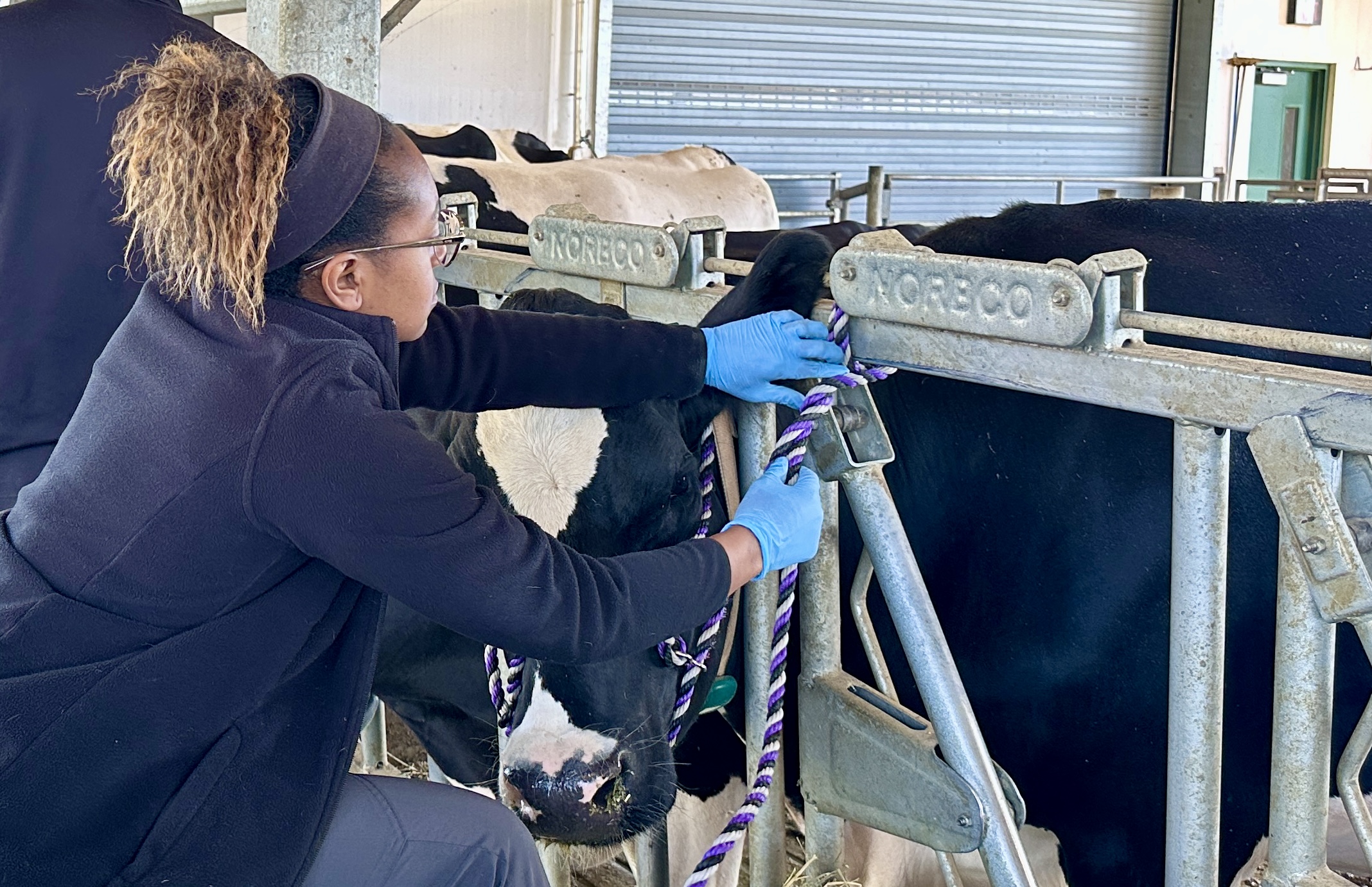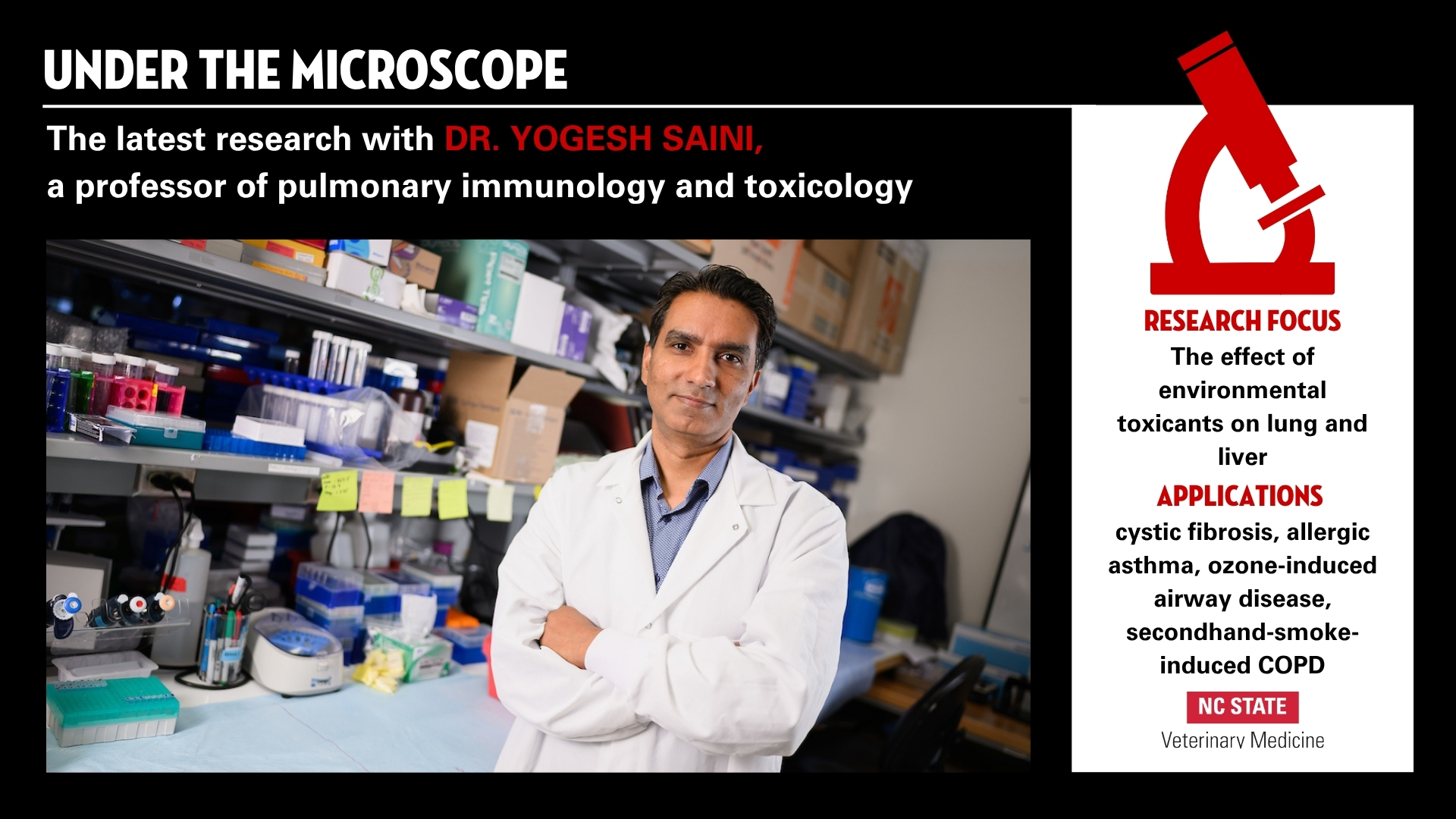NC State Offers ‘Livestock Boot Camp’ to Aspiring Registered Veterinary Technicians
Lauren Buslinger, an RVT and preclinical laboratory instructor at the NC State College of Veterinary Medicine, had the idea to invite Cape Fear Community College students to NC State’s 80-acre working farm to experience top-tier training and hands-on experience with large animals.
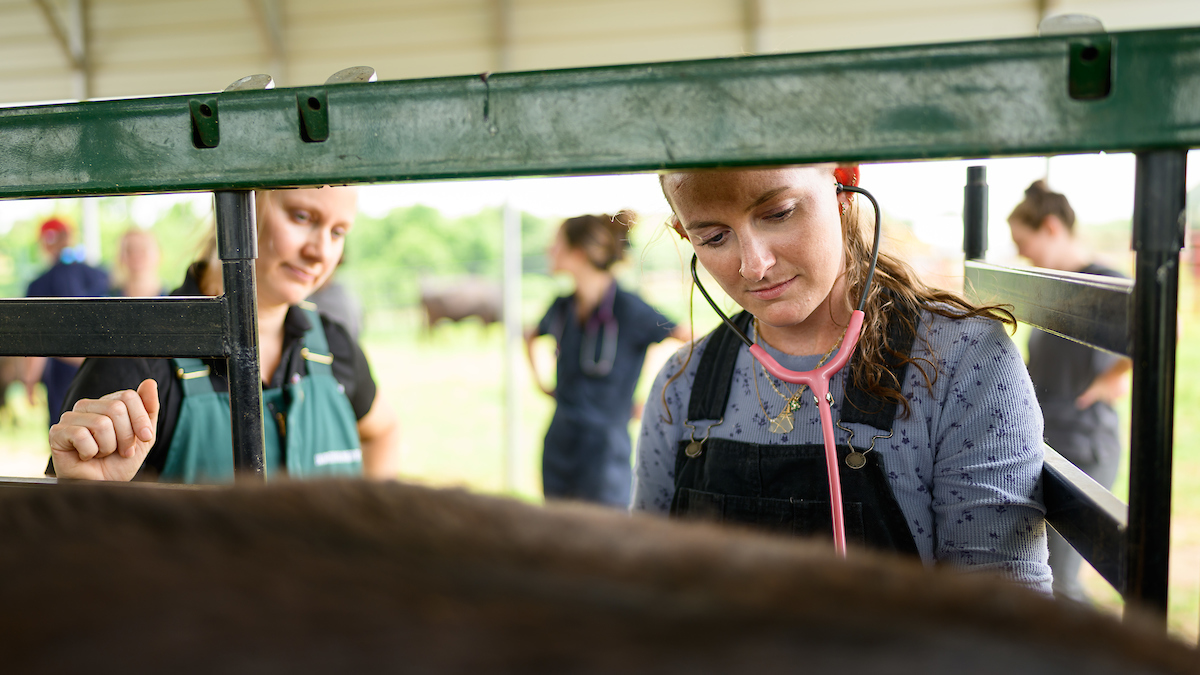
In their navy coveralls and rubber boots, Cape Fear Community College students watched intently as Dr. Allison West, lead veterinarian at the NC State College of Veterinary Medicine’s Teaching Animal Unit, walked around an unconcerned cow in NC State’s state-of-the-art dairy barn and demonstrated how to assess the animal’s health.
The students, who are finishing the first of a two-year veterinary technician program in Wilmington, North Carolina, spent a recent Tuesday getting rare hands-on experience with large animals at the CVM’s 80-acre teaching farm in Raleigh. The daylong event was thanks to the initiative of Lauren Buslinger, a registered veterinary technician and NC State’s preclinical laboratory instructor.
The problem-solving partnership between Cape Fear and NC State was designed to expose future registered veterinary technicians to under-filled roles in food animal medicine, potentially growing the large animal technician pipeline, and also solidify NC State’s position as a leader in veterinary education and the profession.
“I want to inspire as many technicians to want to work in large animal medicine as possible, and that is going to help fill some of the critical needs that we are seeing in that sector,” Buslinger says. “A lot of that starts with getting tech students some experience with large animals. Offering training like this also showcases how incredibly special our TAU is and really highlights its value to others.”
Between the end of World War II and 2023, the number of large animal and livestock veterinarians in the United States reportedly shrunk by 90%, particularly in rural areas. In North Carolina, 12 rural counties spanning nearly 7,584 square miles are in desperate need of private practice veterinarians to care for the animals that produce North Carolina’s food, according to the National Institute of Food and Agriculture.
“With the shortage of large animal veterinarians, technicians can be a way to extend the efforts of vets who are out there by making them more efficient and profitable, but the technicians need to be well-trained so that they can fill this need,” says Dr. Derek Foster, associate professor of ruminant medicine at NC State and Buslinger’s supervisor. “This is where Lauren and our TAU come in.”
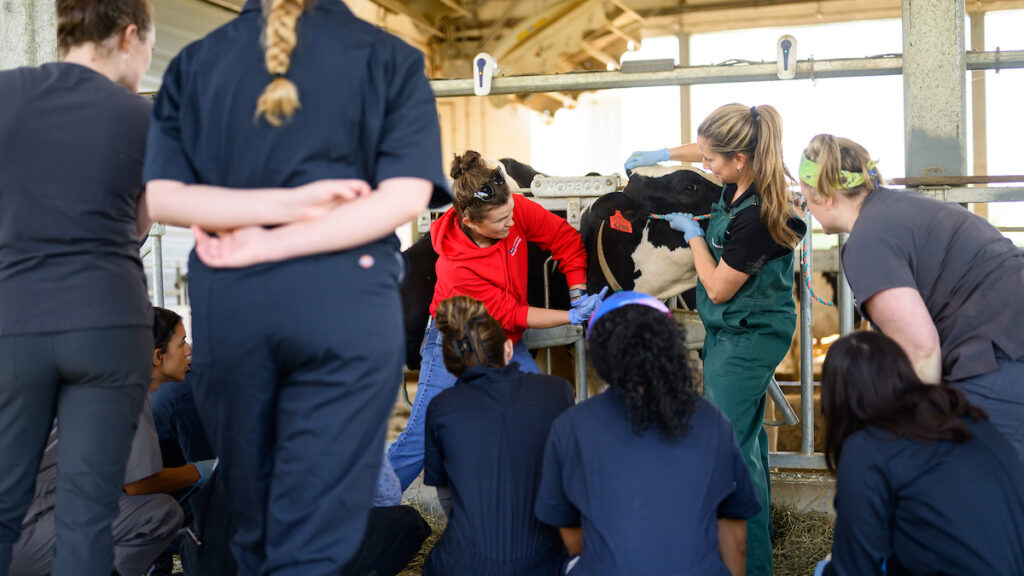
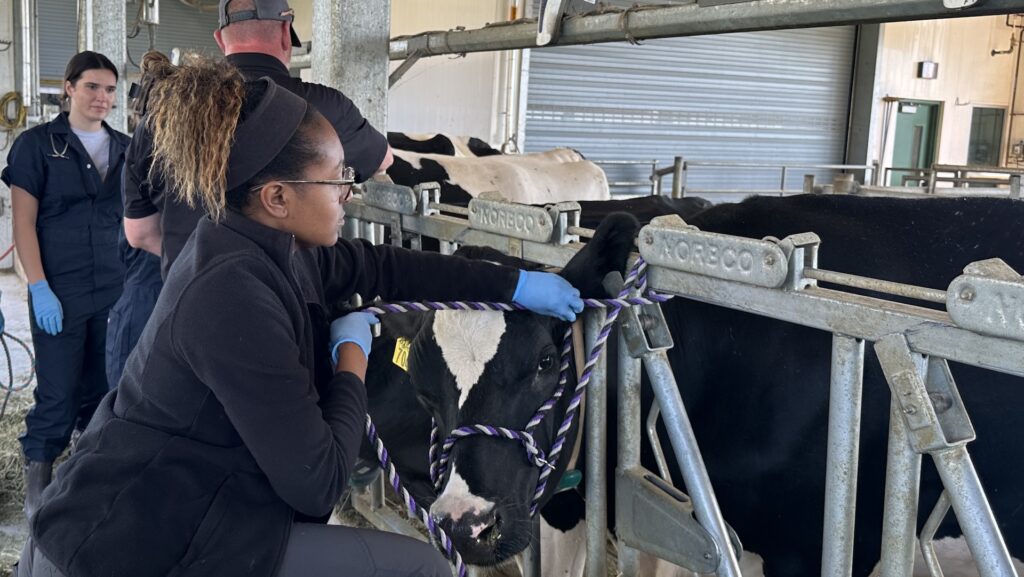
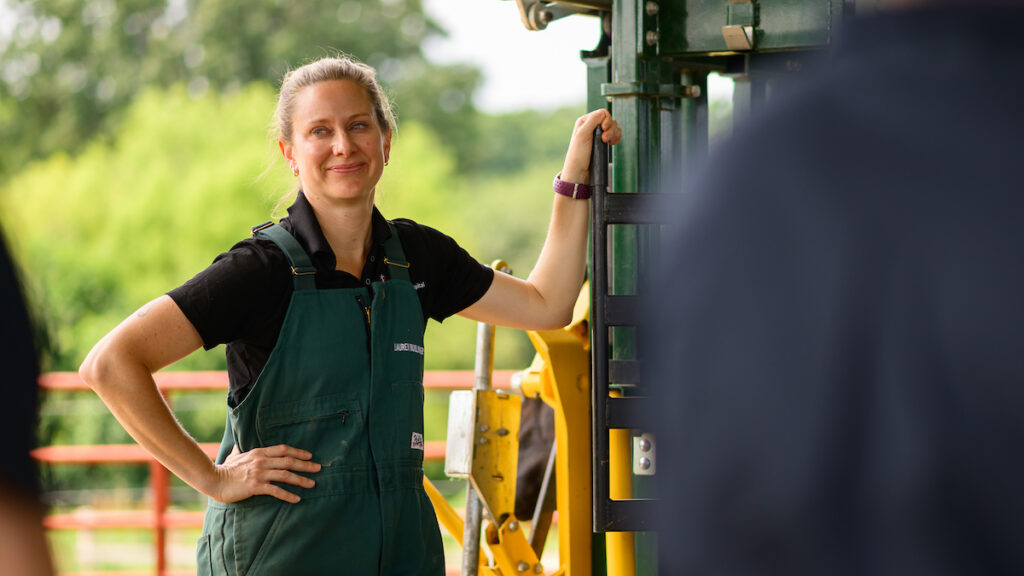
The “livestock boot camp,” as Buslinger called the event, gave the Cape Fear students the chance to learn and practice many skills, including haltering dairy cattle, herding beef cattle, examining goats, weighing pigs and practicing important biosecurity measures. The camp also was open to other NC State employees who wanted to practice large animal handling skills.
Dr. David Brazik, NC State DVM Class of 2002 and Cape Fear’s veterinary medical technology instructor, says that his students get plenty of small animal experience at Wilmington-area veterinary practices and work with horses and poultry on his personal farm but that interactions with cows, goats and pigs can be hard to come by.
“I’ve gotten nothing but positive feedback about our time at NC State,” says Dr. Brazik, who accompanied the students to Raleigh. “I did say, ‘OK, was this worth a two-hour drive?’ because that could be a limiting factor, and even when we were still facing that two-hour drive back home, they were like, “Oh, yes, this was definitely worth it.’ I think that speaks for itself.”
Emily Steffen, a Cape Fear student, is expecting to be a registered veterinary technician in emergency medicine, but she says getting to work with NC State’s teaching animals outside gave her pause.
“I do actually love being on the farm,” she says. “I have no experience with large animals. Even growing up, I didn’t have any exposure to them, but these cows were really nice. Some people might want to work with large animals so this might help them make that decision.”
Support for RVTs
Buslinger, a self-described horse girl who grew up on a Boer goat farm in Caswell County, says she has a soft spot for large animals and really hopes her efforts at expanding registered veterinary technician horizons help fill a need in North Carolina.
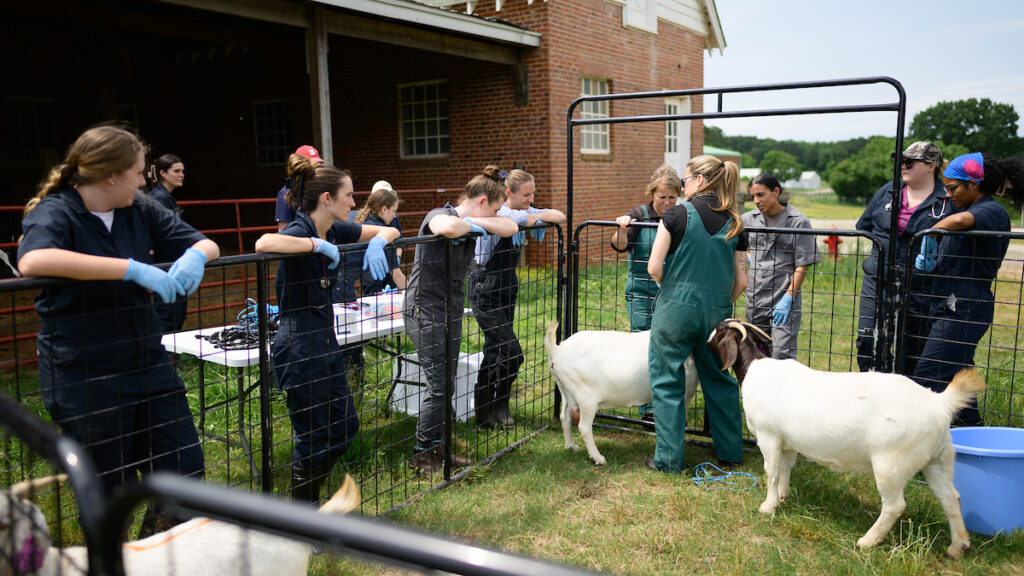
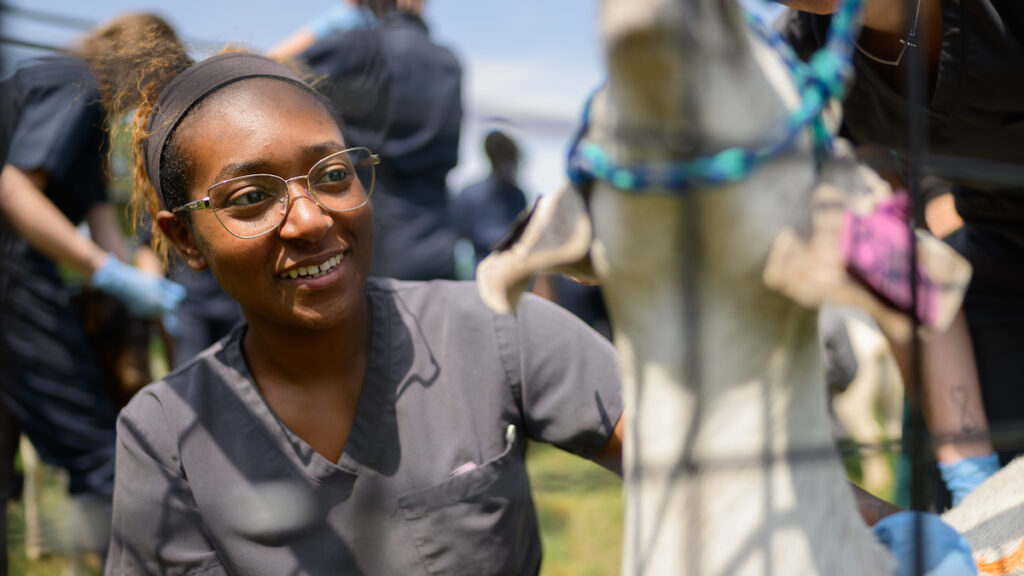
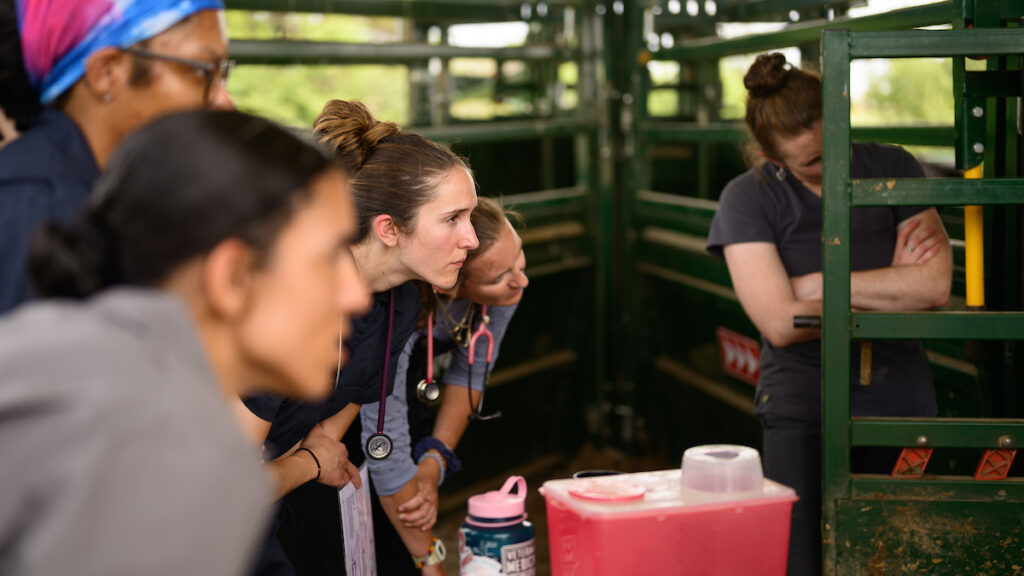
“This is also a really great way for us to train up somebody that we would love to hire,” Buslinger says. “It also shows that the state’s largest employer of veterinary technicians and assistants believes in, values, and supports registered technicians as we garner support across the nation to establish respect for the profession and our licensed skills.”
Buslinger says she found great support for creating the boot camp among NC State’s ruminant experts, including Dr. Foster, and TAU staff who offered to help with the day of training.
Foster especially liked how Buslinger’s proposal took advantage of NC State’s excellent facilities and teaching animals to give technicians-in-training a chance to experience real-world scenarios similar to what they might encounter in large animal practice.
“Lauren is an outstanding teacher and critical piece to our ability to coordinate animal labs for all of our vet students,” he says. “She is also a strong advocate for technicians in large animal practice, so she wanted to combine both of those things. This is another way the CVM is trying to support rural practitioners and livestock producers around North Carolina.”
Buslinger’s veterinary career recently took a turn into teaching when the NC State College of Veterinary Medicine offered her the chance to get a post-graduate certificate in veterinary education through the Royal Veterinary College in London. She has been a registered veterinary technician at NC State since 2011.
“I have been tech-ing so long now that many of my students have birth years later than the year I graduated!” says Buslinger, who also holds a BS degree in zoology from NC State University. “It’s really rewarding for me as a teacher now to share little things I’ve learned along the way — especially the things I could have done differently. Sharing and learning from mistakes is important. It makes all of us better.”
At the livestock bootcamp, West, Buslinger and dairy manager Mike Veach carefully demonstrated how to halter, knot a rope and secure a dairy cow numerous times for the Cape Fear students.
“Lauren was very, very patient,” one student said. No mistakes at all.
- Categories:
